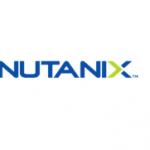By Cat Yong
Teradata Malaysia’s country general manager, Craig Morrison said, “The CoE is quite a big responsibility but a big honour too. We kind of take off our Teradata hat, or at least I do, and think about how we are going to execute on the national agenda.”
When the CoEs were announced with MDeC, its main objectives from Morrison’s perspective is around generating more momentum around BDA and talent development in Malaysia.
“The main responsibility of the CoE, is to do these two things – run proof-of-value (POV) around BDA and in the process develop talent within market.”
Industry
He shared that Teradata is in the midst of running one POV with a very large Malaysian company and as part of that process, academia, the system integrator (SI) community, and customers are engaged.
“It empowers them to go back to their respective organisations and repeat. Clients are also incentivised by us generating publicity or whitepapers that they need to present at conferences. So, quick wins are very important.
“No one else in Malaysia has done a project trying to pull together structured, semi-structured and unstructured data, and come up with something that is kind of world-leading,” Morrison further commented about the POV.
I have a whole company of people who live for this kind of thing!”
Teradata Malaysia is also actively looking for companies to work with, no matter what their budgets are. “I want to get this ball rolling for Malaysia,” said Morrison.
“We are investing time, people and in some cases, money, and it’s all aligned with the national agenda and MDeC.”
Talent
Currently, the lack of talent in the BDA industry is a major hurdle, and one that many local agencies from Talent Corp. to MDeC, are trying to address with industry players. But the emphasis so far, has been on producing more data scientists from local universities.
“It’s easy to think we can get a data scientist who can solve all our problems, who can do big data. That’s actually not true. You also need a subject matter expert’s (SME) knowledge in order to make sense of the data and link the business problem to the data.”
There is also more to a data warehousing solutions provider, than their data scientists and SMEs or industry consultants. Teradata structures their workforce largely around customer-facing domain creation teams, delivery teams, and consultancy teams. Domain creation teams comprise of not just SMEs but also account managers and solution architects.
“We are growing quite significantly. And this is in a market where some of our competitors are laying off hundreds of thousands of people. It’s to the point, we can’t find enough good people, quick enough,” said Morrison.
Agile has a role
BDA projects could last anywhere from two weeks to a year, from Teradata’s perspective. “No exec in the world, wants to wait a year before they see results,” said Morrison.
As result, what Teradata does often is put in one team to implement a logical and physical data model, but also put in another team with an Agile approach.
Morrison said, “What the Agile approach team does is ingest data and just start digging around and doing our discovery and producing findings, before the data is modelled and mapped through the whole process.
“The reason we can do this, is because we use this UDA approach. When we drop data into Hadoop, there’s nothing stopping an analyst from going into the system and producing results. This can be a relatively small team delivering value, literally within the first month,” Morrison pointed out.
Teradata’s intellectual property
Having worked on so many BDA projects, does give Teradata certain advantages, and they are not wasting any time utilising the knowledge and experience; also intellectual property; when they approach prospects.
“We know where the hotspots are. For example, we can tell a business that based on their industry, there are 15 business improvement opportunities.”
This is further drilled down to geographical locations of businesses who have implemented these opportunity-generating solutions, and quantifiable results of each of them.
“We need to protect our intellectual property,” Morrison said, concluding that no one else in the industry has what they have.







